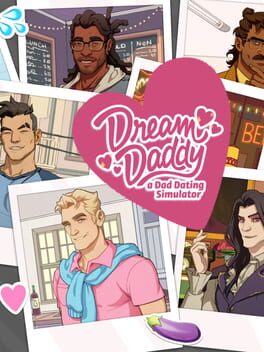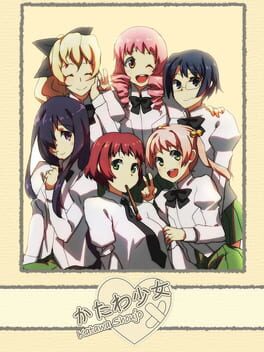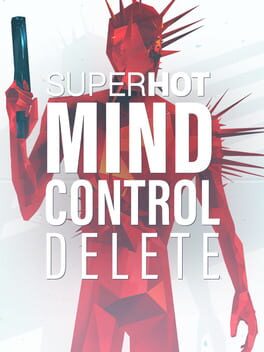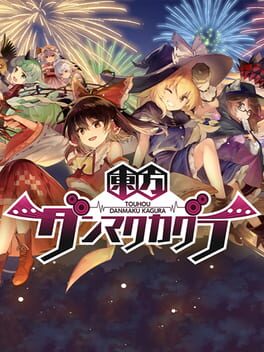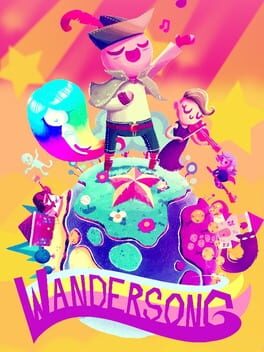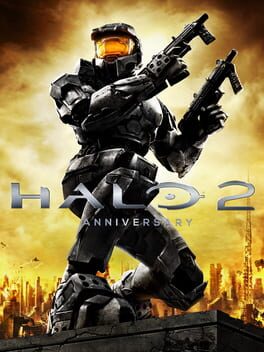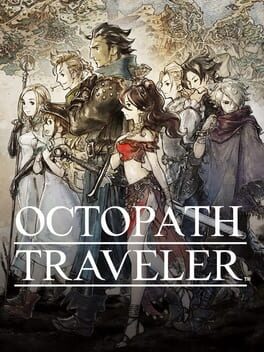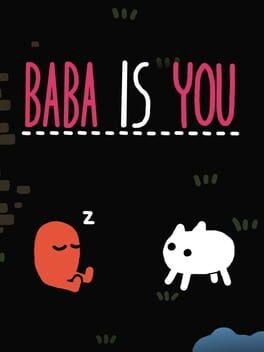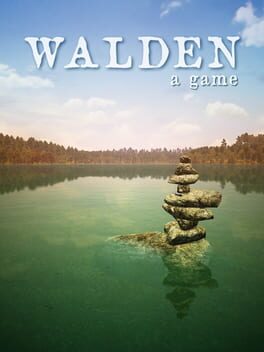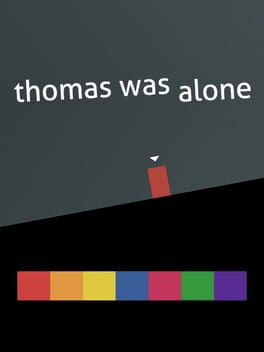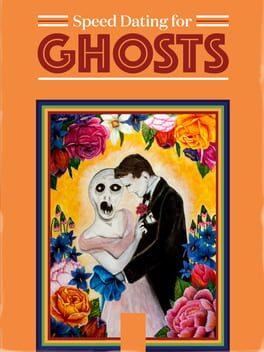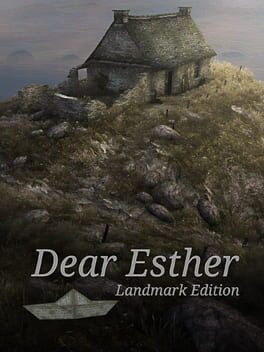2012
Next time I teach a writing class I'm going to use this as an example of why it's important to hire an editor.
It's clearly stitched together from a large team working independently of each other. Which isn't necessarily bad. Unfortunately the writing is weak, especially in the common route, and the protagonist is hard to sympathize with. He views women as puzzles to be solved and takes an overly logical approach to every relationship. Hisao follows Neil Degrasse Tyson on Twitter, I bet. That said there are some neat moments in the relationship stuff and a lot of other little things I wish more visual novels would pick up on.
I will cut myself off here before I launch into an essay about its origins on 4chan with regard to both the roommate character and the questionably Japanese setting. If someone else wants to write that essay, I will gladly read it.
It's clearly stitched together from a large team working independently of each other. Which isn't necessarily bad. Unfortunately the writing is weak, especially in the common route, and the protagonist is hard to sympathize with. He views women as puzzles to be solved and takes an overly logical approach to every relationship. Hisao follows Neil Degrasse Tyson on Twitter, I bet. That said there are some neat moments in the relationship stuff and a lot of other little things I wish more visual novels would pick up on.
I will cut myself off here before I launch into an essay about its origins on 4chan with regard to both the roommate character and the questionably Japanese setting. If someone else wants to write that essay, I will gladly read it.
I've decided "You are a bad person for continuing to play this video game, that you bought, which you are still progressing in" is my least favorite kind of video game narrative.
I enjoyed the first Superhot but couldn't shake the feeling there was something fundamentally unsatisfying about it. I think I figured it out, because it's just as bad here if not worse. The implication of "Time only moves when you do" and the marketing around it is that this lets the player do freaky, split-second, John-Wick-esque maneuvers to exterminate a room. But in practice the gameplay comes down to (1) figuring out how to remove enemies before they have a chance to act and (2) constantly checking your back because spawn points surround the whole area and enemies don't make noise until the damage is done. The most optimal way to play is to find a corner and wiggle your eyes until a red leg comes into view. Part of the issue is the devs are married to this wave-based survival-arena style of level design. I would love to see them try to merge these mechanics with a more traditional FPS setup.
Usually I hold off on rating/reviewing a game until I've beaten it but I just can't find the motivation to finish this now and I wanted to get my thoughts down. On a related note: did you know if you use the hotswap power on an enemy who hasn't completely emerged from their spawn point yet, you instantly die and have to start the whole stage over? Even if you were on the second to last room? It's true!
I enjoyed the first Superhot but couldn't shake the feeling there was something fundamentally unsatisfying about it. I think I figured it out, because it's just as bad here if not worse. The implication of "Time only moves when you do" and the marketing around it is that this lets the player do freaky, split-second, John-Wick-esque maneuvers to exterminate a room. But in practice the gameplay comes down to (1) figuring out how to remove enemies before they have a chance to act and (2) constantly checking your back because spawn points surround the whole area and enemies don't make noise until the damage is done. The most optimal way to play is to find a corner and wiggle your eyes until a red leg comes into view. Part of the issue is the devs are married to this wave-based survival-arena style of level design. I would love to see them try to merge these mechanics with a more traditional FPS setup.
Usually I hold off on rating/reviewing a game until I've beaten it but I just can't find the motivation to finish this now and I wanted to get my thoughts down. On a related note: did you know if you use the hotswap power on an enemy who hasn't completely emerged from their spawn point yet, you instantly die and have to start the whole stage over? Even if you were on the second to last room? It's true!
2018
Like if the dictionary definition of postmodernism was adapted into a video game story.
Rather than blather on about that I'll keep it short and shout out one brilliant thing this game does: When so much of your game is about walking forward and reading text, yes, you absolutely should give the player a dance button that remains accessible.
Rather than blather on about that I'll keep it short and shout out one brilliant thing this game does: When so much of your game is about walking forward and reading text, yes, you absolutely should give the player a dance button that remains accessible.
This is a weird read in 2019. It seems to be an argument in favor of social media oversharing and the sacrifice of privacy that comes with it. It reaches that conclusion by placing a whole lot of trust in the people in power to act in good faith. From a 2019 perspective that's almost quaint, like a nostalgic throwback to how social media used to be before it was all about SEO and disinformation.
But combine that with the fact that every communication between characters has been run through a 4chan-circa-2010 filter (f-slurs abound). It's possible that's a stylistic decision. But it seems more likely that the author just didn't understand social media at the time deeply enough to conceive of a future for it.
Not even gonna touch the teacher/student romance route. Ick.
But combine that with the fact that every communication between characters has been run through a 4chan-circa-2010 filter (f-slurs abound). It's possible that's a stylistic decision. But it seems more likely that the author just didn't understand social media at the time deeply enough to conceive of a future for it.
Not even gonna touch the teacher/student romance route. Ick.
2014
I have to assume all the glowing reviews are for the multiplayer because the campaign is just short of abysmal. Repetitive environments to the point where I once actually returned to the beginning of a level because I couldn't tell which way was forward,
both the Flood and Covenant get a new late-game enemy in the form of a hyper-agile bullet sponge which is just no fun to fight,
as a result of that grenades are no longer for clearing out infantry but instead for easily one-shotting heavy enemies,
and a final boss that I beat by complete accident. Still don't know how the fight was meant to go. The campaign has problems communicating with the player the whole way through. Like the time you enter a room where you have to kill all the enemies and Cortana says "let's sit this fight out."
Anyway, the story. I think there's a really interesting comparison to be made between Halo 2 (2004) and Star Wars Episode II: Attack of the Clones (2002). I mean that in both the positive and negative ways. They both go for a dual-protagonist structure juxtaposing two aspects of the story (interesting! good!), and they both get mired down in the politics of their factions (not inherently bad but poorly executed on both fronts!). I think I would rather take Lucas's hokey dialogue than the grandoise nothingness the Covenant leaders spout.
And speaking of the early 2000s, how about those marines? How about Johnson? I said "factions" in the plural earlier but the humans seem to be pretty unified on everything. How about the Aliens, waging a holy war with their... weapons of mass destruction? Is this a stretch? I don't think it's much of a stretch.
I want to keep going but honestly, the comparison to the Star Wars prequels says enough. About the game sure, but mostly about me.
both the Flood and Covenant get a new late-game enemy in the form of a hyper-agile bullet sponge which is just no fun to fight,
as a result of that grenades are no longer for clearing out infantry but instead for easily one-shotting heavy enemies,
and a final boss that I beat by complete accident. Still don't know how the fight was meant to go. The campaign has problems communicating with the player the whole way through. Like the time you enter a room where you have to kill all the enemies and Cortana says "let's sit this fight out."
Anyway, the story. I think there's a really interesting comparison to be made between Halo 2 (2004) and Star Wars Episode II: Attack of the Clones (2002). I mean that in both the positive and negative ways. They both go for a dual-protagonist structure juxtaposing two aspects of the story (interesting! good!), and they both get mired down in the politics of their factions (not inherently bad but poorly executed on both fronts!). I think I would rather take Lucas's hokey dialogue than the grandoise nothingness the Covenant leaders spout.
And speaking of the early 2000s, how about those marines? How about Johnson? I said "factions" in the plural earlier but the humans seem to be pretty unified on everything. How about the Aliens, waging a holy war with their... weapons of mass destruction? Is this a stretch? I don't think it's much of a stretch.
I want to keep going but honestly, the comparison to the Star Wars prequels says enough. About the game sure, but mostly about me.
2018
I do feel a little bad about this. When I decided I Like RPGs Now the other month I dove into this one with the mindset that I'm going to see the story through and not give up when it gets tricky, and here I am doing that.
The battles are fun, or at least they were 30 hours ago. I kind of dread them now but that's probably me getting impatient with the game. The BP and weakness system create good strategies without getting overwhelming. Thing is, I ended up building a party that relies heavily on multi-target elemental attacks to whittle down the enemy defense, and I just ran into a boss whose ability is disabling those specifically.
Not a huge deal, all I have to do is change my party and grind the weaker guys up while figuring out a new angle of attack. Except... in 40+ hours, this game has not managed to make me care about any of these characters. The story is bad. No, worse: the stories are bad. All 8 of them, equally insipid.
I could do the grinding, or I could stop playing.
Oh well. I was only playing this because I heard such good things about the sequel. I established my baseline. Mission accomplished, moving on.
The battles are fun, or at least they were 30 hours ago. I kind of dread them now but that's probably me getting impatient with the game. The BP and weakness system create good strategies without getting overwhelming. Thing is, I ended up building a party that relies heavily on multi-target elemental attacks to whittle down the enemy defense, and I just ran into a boss whose ability is disabling those specifically.
Not a huge deal, all I have to do is change my party and grind the weaker guys up while figuring out a new angle of attack. Except... in 40+ hours, this game has not managed to make me care about any of these characters. The story is bad. No, worse: the stories are bad. All 8 of them, equally insipid.
I could do the grinding, or I could stop playing.
Oh well. I was only playing this because I heard such good things about the sequel. I established my baseline. Mission accomplished, moving on.
It's really, really, really, REALLY weird that this game exists.
It's an interesting experiment. What if your actions in the game affected the real-money price of microtransactions? Of course, if every game unlock has a lowest possible price, then that is its value. Anything higher is just a waste of money.
...... It's REAAAALLY WEEEEEIRD that this game exists.
It's an interesting experiment. What if your actions in the game affected the real-money price of microtransactions? Of course, if every game unlock has a lowest possible price, then that is its value. Anything higher is just a waste of money.
...... It's REAAAALLY WEEEEEIRD that this game exists.
2019
2017
You are Henry David Thoreau. You have just moved into a cabin by Walden pond. You fish, you observe nature, and you explore the woods you now call home. After a few days, you walk down the path to your family's house in Concord, where your mother has done your laundry.
I don't want to relitigate Thoreau's laundry habits. The critics and angsty English students have done that plenty without my input. More interesting is the mere presence of the word "laundry"—a word that doesn't appear once in the source text, here presented matter-of-factly to the player— which is an early signal from the game that it has a deep understanding of its source and an awareness of its criticisms. That makes it probably the best direct book to game adaptation I have played yet (and not just because of the lack of competition).
Walden is not a book about survival, and neither is this a game about survival. The punishment for failing to manage resources is minimal. Like the book, it's a game about becoming intimately familiar with a small slice of nature, about exploring and reexploring the same areas until the specific trees become memorable. Like the book, it's also about continuing to exist in society, not reject it. Concord itself is a significant enough hub of activity in the game that the player has the option of beginning the day in it instead of in the cabin. The game approximates Thoreau's visitors from the book with brief anti-slavery missions that serve to anchor the time period to a historical context but ironically lose a modicum of humanity. I imagine this was to get around the constraint of having to model and animate more humans. If that was the choice made in order to have the humans who are in the game look as good as they do, then it was the correct one.
That mission the game inherits from the book is somewhat counteracted by the attempts to make it a more typical video game. Points of interest are marked on the map, which resulted in a couple days of my Thoreau min/maxing his stamina in order to sprint to each. Shortly before winter I realized I forgot to buy an important upgrade and spent a full day grinding out money. Those moments seem antithetical to Thoreau's experiment but I suppose that's the nature of making it a game. Perhaps it's a different kind a fail state, one where the player failed to maintain Thoreau's narrative.
On the technical side, the game has exactly the amount of jank you'd expect from a game that launches with multiple arts endowment logos instead of corporate logos. Thankfully they never impede the experience except for one area where the jank overlaps with the artistry: the voice acting. Thoreau is played by Emile Hirsch (Into the Wild, Speed Racer) in a performance so inert I was surprised to learn from the credits that not only is he professional but a voice I should have recognized. The other performances, most notably Jim Cummings as Ralph Waldo Emerson, are serviceable at worst, so there's a stark, grating gulf in emotion when the bulk of the narrative sounds like it's being sight-read off a page yet attributed to a character for whom "inspiration" is a resource in need of active management by the player.
But you don't need to engage with Thoreau's audio or even his writing, which is the beautiful part of adapting this as a video game. I'm not a particular fan of Walden (the book) but it does irk me to see people criticize it for what it was never meant to be. I worry the same will happen to Walden (a game). This is not a survival game or an exploration game. It's a re-re-re-exploration game with some survival elements included, for you. If you want.
I don't want to relitigate Thoreau's laundry habits. The critics and angsty English students have done that plenty without my input. More interesting is the mere presence of the word "laundry"—a word that doesn't appear once in the source text, here presented matter-of-factly to the player— which is an early signal from the game that it has a deep understanding of its source and an awareness of its criticisms. That makes it probably the best direct book to game adaptation I have played yet (and not just because of the lack of competition).
Walden is not a book about survival, and neither is this a game about survival. The punishment for failing to manage resources is minimal. Like the book, it's a game about becoming intimately familiar with a small slice of nature, about exploring and reexploring the same areas until the specific trees become memorable. Like the book, it's also about continuing to exist in society, not reject it. Concord itself is a significant enough hub of activity in the game that the player has the option of beginning the day in it instead of in the cabin. The game approximates Thoreau's visitors from the book with brief anti-slavery missions that serve to anchor the time period to a historical context but ironically lose a modicum of humanity. I imagine this was to get around the constraint of having to model and animate more humans. If that was the choice made in order to have the humans who are in the game look as good as they do, then it was the correct one.
That mission the game inherits from the book is somewhat counteracted by the attempts to make it a more typical video game. Points of interest are marked on the map, which resulted in a couple days of my Thoreau min/maxing his stamina in order to sprint to each. Shortly before winter I realized I forgot to buy an important upgrade and spent a full day grinding out money. Those moments seem antithetical to Thoreau's experiment but I suppose that's the nature of making it a game. Perhaps it's a different kind a fail state, one where the player failed to maintain Thoreau's narrative.
On the technical side, the game has exactly the amount of jank you'd expect from a game that launches with multiple arts endowment logos instead of corporate logos. Thankfully they never impede the experience except for one area where the jank overlaps with the artistry: the voice acting. Thoreau is played by Emile Hirsch (Into the Wild, Speed Racer) in a performance so inert I was surprised to learn from the credits that not only is he professional but a voice I should have recognized. The other performances, most notably Jim Cummings as Ralph Waldo Emerson, are serviceable at worst, so there's a stark, grating gulf in emotion when the bulk of the narrative sounds like it's being sight-read off a page yet attributed to a character for whom "inspiration" is a resource in need of active management by the player.
But you don't need to engage with Thoreau's audio or even his writing, which is the beautiful part of adapting this as a video game. I'm not a particular fan of Walden (the book) but it does irk me to see people criticize it for what it was never meant to be. I worry the same will happen to Walden (a game). This is not a survival game or an exploration game. It's a re-re-re-exploration game with some survival elements included, for you. If you want.
2012
2018
I'd grown tired of rogue-lites over the years and I guess it's a great time for indie games to move on from them because this is pretty much the pinnacle. It's the perfect story for this type of gameplay and the perfect gameplay for the story.
And even though I think that story peters out by the time the credits roll, the game is so well designed that I'll be coming back to this for a while. There are tons of tiny choices that tell you the developers are keyed into exactly what they're making. I'm especially impressed by the massive amount of dialogue they recorded to allow the characters to react to every little development (or setback) in the player's journey.
I want to unlock the rest of the stuff. Seems like it'll be a long grind. That's okay, I've got some podcasts to listen to anyway.
oh also there's a fishing minigame
And even though I think that story peters out by the time the credits roll, the game is so well designed that I'll be coming back to this for a while. There are tons of tiny choices that tell you the developers are keyed into exactly what they're making. I'm especially impressed by the massive amount of dialogue they recorded to allow the characters to react to every little development (or setback) in the player's journey.
I want to unlock the rest of the stuff. Seems like it'll be a long grind. That's okay, I've got some podcasts to listen to anyway.
oh also there's a fishing minigame
Dear Esther with the developer commentary on is a more enjoyable experience than Dear Esther with the plot narration.
Is that because the commentary nodes give you more of an objective and incentive to explore than environmental details? Because the developer commentary is more engaging audio than the flowery narrative? Because the description of the game the developers think they made is better than the game they actually did?
... All of the above?
Is that because the commentary nodes give you more of an objective and incentive to explore than environmental details? Because the developer commentary is more engaging audio than the flowery narrative? Because the description of the game the developers think they made is better than the game they actually did?
... All of the above?
